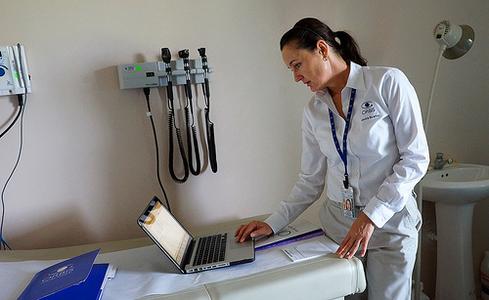More than a decade after publication of HIPAA’s security rule, healthcare information security officers still struggle to be heard.

When I first was introduced to the infosec subculture in the1990s, there seemed to be very few of us in healthcare provider organizations with official security roles. And we were mostly "stuckees" who just fell into the job. (You know, someone in charge pointed at you and said, “You’re now our security person.”)
You’d think patient privacy, and, thus, security, would be embraced, but it wasn’t so. Doctors and nurses swore they already were privacy sensitive. And, after all, we weren’t banks holding money to be stolen… Who’d want to steal our databases with a few million boring medical records?
We struggled to be heard in our organizations, to implement policies and strengthen passwords. But we were often thwarted and viewed as obstacles, if not threats, to patient care. Where else would you be told that patients might die because you made doctors memorize their own secret, six-character passwords? Or were made to feel audacious asking for staff while nurses were being laid off?
My own IT co-workers openly shared their passwords and laughed at my raised eyebrows. (OK, so I was an easy target with my earnestness and zeal, but still…) When the system administrator of our token authentication server left for another job, he handed in his token with his PIN taped to the back. He didn’t even try to hide the fact that he’d completely undermined the token’s purpose.
My healthcare infosec colleagues and I did have a smattering of support from sincere leaders who got it. These champions understood the risks and the value of an infosec program to mitigate them, at least theoretically. One of my favorite doctors reported chiding medical residents for failure to log off their exposed hallway computers before walking away, and he routinely logged off any open computer he found. But when it came down to requiring managers to take time to review lists of users, for example, or, most challenging of all, enforcing security policies across the organization, support withered.
We stuckees consoled each other at healthcare security and privacy conferences. We attended sessions where we shared ideas for getting leadership buy-in and for running an infosec program on a tiny budget. But, to rephrase Rodney Dangerfield’s famous line, we lamented, "We don’t get no respect."
So what’s changed in healthcare security since the 90s? HIPAA’s security rule has definitely heightened awareness, and the word "security" pops up a lot more now. Healthcare organizations and their business associates have security policies, they talk about security at workforce training sessions, and they have designated security officials -- all required by HIPAA.
But here we are, more than 10 years after the security rule’s publication, and not nearly enough has changed. Yes, some organizations have recognized that this isn’t simply about regulatory compliance; it’s a business risk issue. And to do the job right, there needs to be a formal infosec program with a visible structure, real security expertise, and support at the top.
Where are the CISOs?
From what I see, security savvy organizations are in the minority. Too many organizations’ infosec programs are still very immature. The glaring signs are: 1) lack of internal security expertise; and 2) insufficient resources to carry out security functions.
HIPAA requires healthcare organizations and their business associates to designate an information security official or ISO. But time and again I see the ISO is either a maxxed-out CIO with no security background or experience, or else a network administrator stuckee who may have some notion of network security, but no training, and little time for this extra responsibility.
It continues to be unusual to see a full-time ISO with security credentials, much less staff, in other than the largest healthcare networks. Yet even in smaller organizations, reasonable security programs are by definition complex, require awareness of good security practices, and require people to implement and monitor security processes. Never mind the question of regulatory compliance. It’s just not possible to have such a program without expertise and resources.
Even mature infosec programs can’t eliminate all risk. But too many breaches today -- not only in healthcare but in other sectors -- aren’t due to zero-day attacks exploiting previously undiscovered vulnerabilities. They are avoidable events that are frequently tied to lack of security expertise and resources to implement security controls.
In healthcare, and elsewhere, lost and stolen laptops, hard drives, USB drives, and the like with unencrypted patient information are the biggest sources of breaches. To be sure, with today’s wide use of a variety of tablets and smartphones, mitigation strategies such as encrypting all end-user devices and media can be challenging financially and technologically. But slapdash security will keep us in a breach-a-week muddle.
We need to appoint ISOs with security knowledge and experience, and then give them enough clout and staff to accomplish the processes required by HIPAA and good practice. It’s time for senior leaders to finally recognize the essential business value of infosec and provide the necessary resources to make it happen. We need R-E-S-P-E-C-T!
About the Author(s)
You May Also Like
The fuel in the new AI race: Data
April 23, 2024Securing Code in the Age of AI
April 24, 2024Beyond Spam Filters and Firewalls: Preventing Business Email Compromises in the Modern Enterprise
April 30, 2024Key Findings from the State of AppSec Report 2024
May 7, 2024Is AI Identifying Threats to Your Network?
May 14, 2024
Black Hat USA - August 3-8 - Learn More
August 3, 2024Cybersecurity's Hottest New Technologies: What You Need To Know
March 21, 2024




